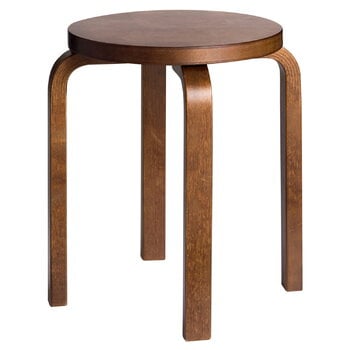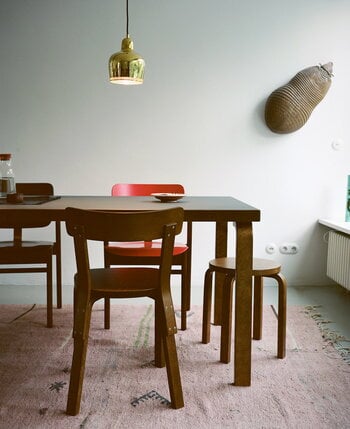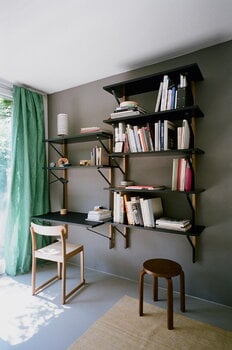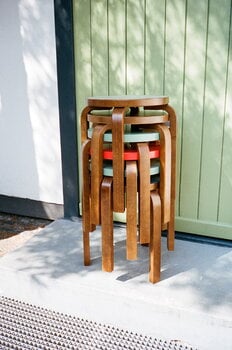The collaboration between Artek and designer Hella Jongerius has given new colours for the iconic Aalto stool. Stool E60, designed by Alvar Aalto for Artek, is one of the icons of Finnish furniture design. The four-legged Aalto stool is still today a beautiful, genius product whose simple shape will always be modern. Stool E60 makes a perfect extra chair and can also be used as a small table, for instance, next to an armchair or bed. The stools are easily stackable as a beautiful tower when not in use.
The Aalto stool was presented for the first time in 1933 and it was a sensation in the design world of its time. The stool’s revolutionary L-leg structure was a major boost for the modern Scandinavian design language. To bend the leg of Aalto’s stool, the same technique is still in use: a piece of straight, solid birch was sawn open at the end in the direction of the fibres, forming the shape of a fan. Thin pieces of birch veneer were then glued in the grooves. This structure makes it possible to bend the wood by heating or steaming at the desired angle and when dry, the L-leg will have a very strong texture that can be easily joined to the seat.










